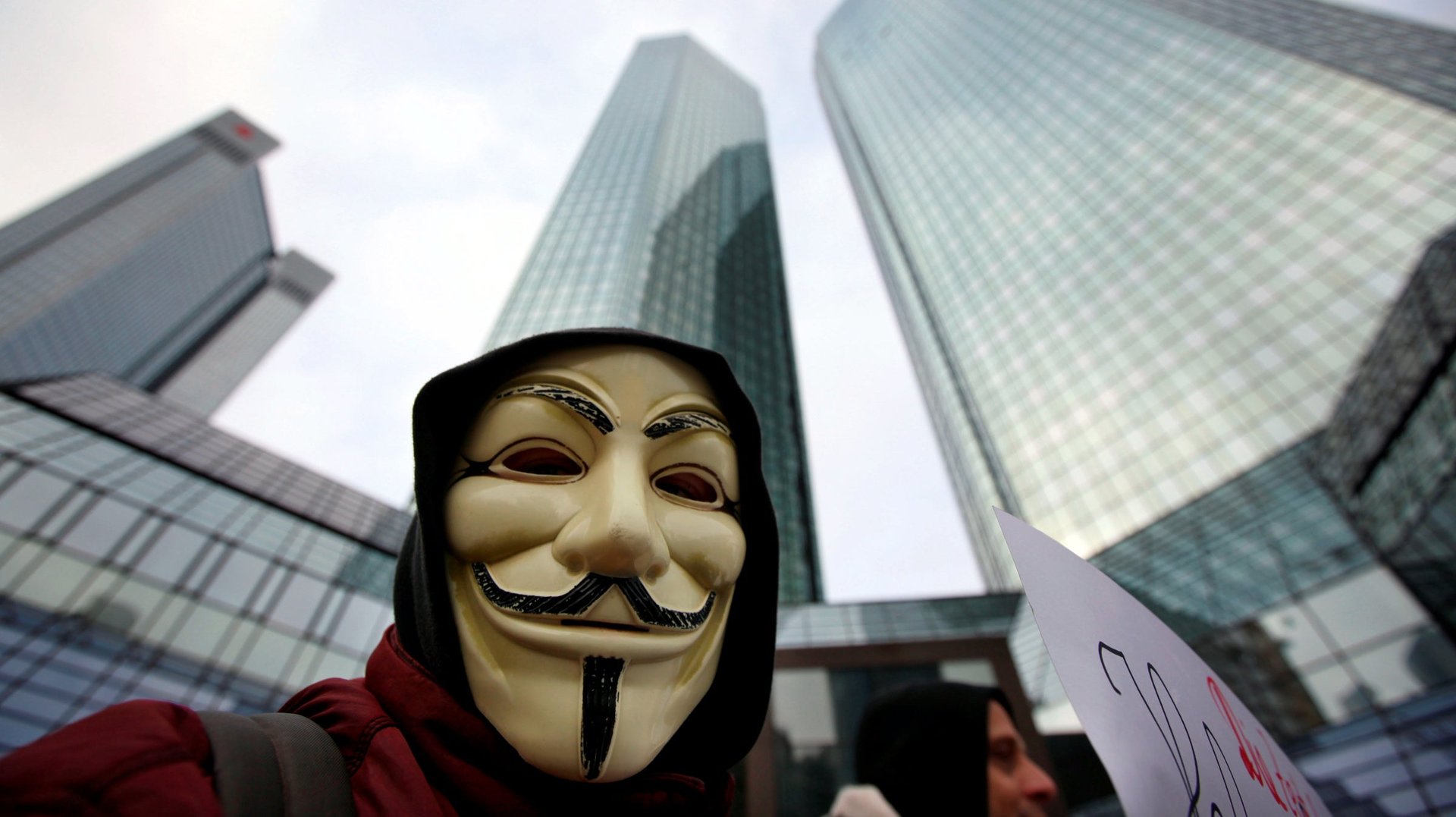Black-hat bitcoin’s days are numbered
On Tuesday (May 14), the US government seized accounts that Japan-based Mt. Gox, the world’s largest bitcoin exchange, held at its US bank, Wells Fargo, and with Dwolla, an online payments company. The government said Mt Gox violated money laundering rules. (Mt Gox says it is investigating.) For the fast-evolving bitcoin ecosystem, this marks a new phase of development.


On Tuesday (May 14), the US government seized accounts that Japan-based Mt. Gox, the world’s largest bitcoin exchange, held at its US bank, Wells Fargo, and with Dwolla, an online payments company. The government said Mt Gox violated money laundering rules. (Mt Gox says it is investigating.) For the fast-evolving bitcoin ecosystem, this marks a new phase of development.
It looks like Mt. Gox got caught red-handed.
In March, the US Treasury Department issued new rules. Companies that exchange traditional currency for bitcoins now need to register with the Financial Crimes Enforcement Network (FinCEN), which is charged with preventing money laundering. But Mt. Gox’s US subsidiary, Mutum Silligum (in Latin, roughly: “Silent Seal”) didn’t register, or tell Wells Fargo that it was a money transmitter. A confidential informant who used Mt. Gox to buy and sell bitcoins provided the government with the evidence it used to seize the accounts.
It’s not an attack on bitcoin.
Some have characterized bitcoin’s treatment by the government as “stomping out currency competition.” But that’s roughly the same as saying that the investigation of HSBC for laundering drug money is an attack on the dollar. The government regulates businesses that send money so that criminals can’t launder their gains through the financial system, and so consumers don’t get ripped off in scams. Dwolla, which Mt. Gox used to transfer money between Mutum Silligum and its customers, is registered with FinCEN.
But it will hurt exchanges that aren’t ready for the big leagues.
The Treasury’s rules raise the cost of doing business. Companies that trade bitcoin for other currencies will need to keep records about their customers’ identities, and report transactions over $10,000—and keep an eye out for any transactions that are “structured” to get around that cap. That means trouble for small-time outfits, and any that rely on illicit funds. It’s also an advantage for venture-fund backed tech companies getting into the space, who have more capital for the up-front costs.
And it gets harder: The patchwork of money transmission laws in the US will likely mean dealing with regulators separately in every state, a complicated and expensive proposition. While many exchanges have joined forces with institutions that already have state money transmission licences, legal experts and bitcoin insiders say that state regulators have begun planning to enforce the rules directly on bitcoin exchanges. The laws that Mt. Gox is running into are no different to the ones that Square and PayPal had to adapt to as they became increasingly popular methods of sending money between states and countries.
The bitcoin business landscape is changing.
CoinLab, a venture-backed exchange, had already put pressure on Mt. Gox with a $75 million lawsuit over a proposed partnership gone sour. That collaboration was designed to help Mt. Gox comply with US rules. CoinLab and another venture-backed US exchange, Coinbase, are both registered as money transmitters with FinCEN. That puts them a step ahead of Mt. Gox, which would need to settle the government’s case and begin complying with regulations to stay in business in the US. But any bitcoin exchange needs to go through the arduous process of getting state money transmission licenses in each US state where it has users (barring two states that don’t require licenses), according to Terry Maher, an attorney who helps emerging payments companies comply with money transmission laws.
What about anonymity?
Some would like bitcoin to be the home of a truly anonymous financial system. But if it’s going to be tradable in advanced economies—Poland and the UK have raised similar issues—the exchanges will need to know more about their customers. “The anonymous nature would probably be no more,” Maher says. Patrick Murck, who works on legal issues for Coinlab, notes that the crypto currency’s ability to disguise transactions is over-rated, due to the distributed nature of bitcoin record-keeping (every transaction is recorded in every node on the network). But since the regulations currently only apply to exchanging money in and out of bitcoin, they touch only a small part of the market. ”There’s a lot of action where bitcoin intersects with traditional finance,” Murck says, “but there’s a lot of bitcoin business you can do where you never have to touch cash.”
How else will bitcoin go mainstream?
Bitcoin has a lot of problems as a currency—its tendency for spasms of crazy volatility, most notably—but fewer as a payments system. Losing its reputation for illicit activities could help it gain mainstream acceptance. Especially with big competitors like Google trying to win over the online payments business, it needs all the brand credibility it can get. “White-hat people won’t care for the most part,” Murck says. “At CoinLab, I don’t want black-hat or grey-hat business, I only want people who are willing to put their name behind their actions.”